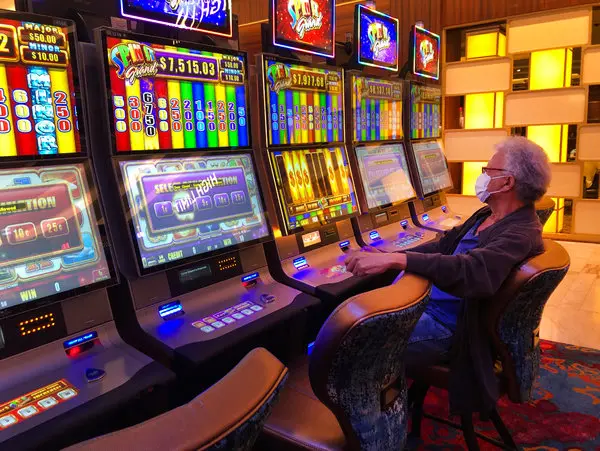The COVID-19 pandemic has presented unprecedented challenges across various sectors, and the Indian casino industry is no exception. With restrictions on travel, social distancing measures, and economic uncertainties, casinos in India have had to navigate a complex landscape. This article explores the key challenges facing Indian casinos during the pandemic and the strategies they are employing to adapt to these difficult times.
Key Challenges
1. Operational Restrictions
- Lockdowns and Curfews: Nationwide lockdowns and regional curfews have forced casinos to close their doors temporarily. These restrictions have led to significant revenue losses and operational disruptions.
- Social Distancing Measures: Even when allowed to open, casinos have faced strict social distancing requirements. This has reduced the number of patrons allowed on-site and impacted revenue from gaming tables and other services.
2. Economic Impact
- Revenue Losses: The closure of casinos and reduced capacity due to social distancing measures have led to substantial revenue losses. The industry has struggled to maintain profitability amid these constraints.
- Job Losses: The pandemic has resulted in job losses and reduced working hours for casino staff. Many employees have faced layoffs or reduced income, contributing to broader economic challenges within the industry.
3. Health and Safety Concerns
- Enhanced Hygiene Protocols: Casinos have had to implement rigorous health and safety protocols to protect patrons and staff. This includes frequent sanitization, temperature checks, and mandatory mask-wearing, all of which add to operational costs.
- Consumer Confidence: The ongoing health crisis has affected consumer confidence, with many patrons hesitant to visit casinos due to concerns about virus transmission.
4. Supply Chain Disruptions
- Operational Disruptions: The pandemic has caused disruptions in the supply chain, affecting the availability of essential supplies and equipment needed for casino operations. This includes gaming equipment, food and beverage supplies, and maintenance services.
- Increased Costs: Supply chain issues have led to increased costs for obtaining necessary materials and services, further straining the financial stability of casinos.
Adaptation Strategies
To navigate these challenges, Indian casinos have implemented various adaptation strategies:
1. Digital Transformation
- Online and Mobile Gaming: Many casinos have expanded their online and mobile gaming offerings to reach players who are unable to visit physical locations. This includes launching or enhancing online casino platforms and mobile apps.
- Virtual Events: Some casinos have hosted virtual events and online tournaments to engage with players and generate revenue despite physical restrictions.
2. Enhanced Health and Safety Measures
- Hygiene Protocols: Casinos have invested in advanced cleaning and sanitation technologies to ensure a safe environment for patrons and staff. This includes installing hand sanitizing stations and implementing regular deep cleaning procedures.
- Contactless Solutions: The adoption of contactless payment methods and digital check-in systems has minimized physical contact and enhanced safety.
3. Flexible Operations
- Adaptable Business Models: Casinos have adapted their business models to include flexible operating hours and reduced capacity based on government guidelines. This approach helps them manage operational costs and comply with regulations.
- Promotions and Incentives: To attract patrons back to their facilities, casinos have offered promotions, discounts, and incentives. These initiatives aim to boost customer visits and increase revenue.
4. Financial Management
- Cost Control: Casinos have implemented cost-control measures to manage expenses during periods of reduced revenue. This includes renegotiating contracts, reducing operational costs, and streamlining operations.
- Government Support: Some casinos have sought government support and financial assistance to mitigate the impact of the pandemic. This support can help cover operational losses and provide relief to affected employees.
Future Outlook
The Indian casino industry faces an uncertain future as the pandemic continues to evolve. Key considerations for the future include:
- Long-Term Health Measures: Continued focus on health and safety measures will remain crucial as casinos adapt to new norms and ensure the well-being of patrons and staff.
- Investment in Technology: Ongoing investment in digital and technological solutions will play a key role in shaping the future of the industry, particularly in enhancing online and mobile gaming experiences.
- Regulatory Changes: The industry may face evolving regulations and guidelines as governments adjust their response to the pandemic. Casinos will need to remain agile and adapt to these changes to ensure compliance and operational continuity.
Conclusion
The COVID-19 pandemic has posed significant challenges for Indian casinos, impacting operations, revenue, and consumer confidence. By embracing digital transformation, enhancing health and safety measures, and adapting their business models, casinos are working to navigate these difficulties. As the situation evolves, the industry will need to remain resilient and innovative to overcome the challenges and thrive in the post-pandemic landscape.
Hit the jackpot with 3k.top—your top choice for online casino fun! Play now and win big!




